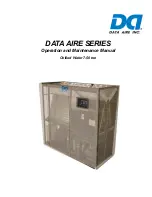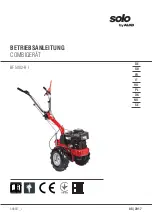
Setup mode
Chapter 4
OPERATION MANUAL
V2.3.0en/07.06.19//17.12
Unichiller®
51
4.2.1
Select temperature control: Internal or process
PROCEDURE
Go to the “Categories Menu”.
Tap on the category “Temperature Control”.
Tap on the category “Process/Internal”.
Choose between the entries “Internal” and “Process (Cascade)”.
Confirm your choice by tapping on “OK”.
4.2.2
Temperature control to internal temperature
With internal temperature control, a control circuit is used to control the temperature at the inter-
nal Pt100 temperature sensor. This Pt100 temperature sensor is built into the device and is located
close to thermal fluid outlet (forward flow) or in the bath tank.
4.2.3
Temperature control to process temperature
Certain temperature control tasks require that the temperature is recorded elsewhere for best
results than described. Setting the temperature to process temperature makes alternatives availa-
ble. When setting the temperature to process temperature, an additionally connected external
Pt100 temperature sensor is used in conjunction with a master controller (cascade controller). The
internal sensor at the supply line is integrated with the slave controller. This temperature control
method is used e. g. for the thermostatic control of jacket vessels. The setpoint setting is valid for
the process controller. It in turn calculates a target value for the internal controller to optimally
adjust the process setpoint.
Incorrect installation of the process sensor (Pt100)
MATERIAL DAMAGE CAUSED BY FAULTY TEMPERATURE CONTROL
Disruption of measured value recording due to static build-up.
The process sensor (Pt100) must have a screened supply cable.
If the sensor tube is metallic, take care to avoid ground loops.
The connection cable should not be unnecessarily long.
Make sure that the process sensor is properly attached at the measurement point and that
there is good thermal coupling
The sensor itself must have good insulation from the screen or the protective grounding (R > 20
MΩ).
Representation of an
optimum internal
temperature control
















































